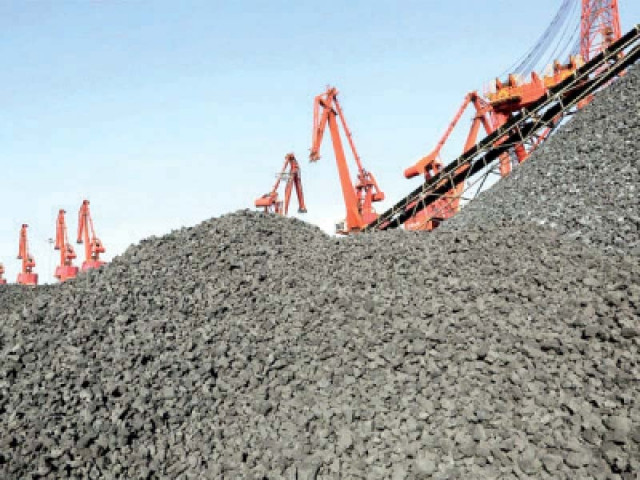Declining coal prices stabilise local cement industry
Drop to approximately $100 per tonne, the lowest level in 26 months

Owing to a significant decline in international coal prices, Pakistan’s coal prices are returning to average levels, bringing stability to the cement industry in the near future.
Insight Research reports that international coal prices have undergone a substantial decline in the past few weeks, reaching approximately $100 per tonne, the lowest level in 26 months. This marks a remarkable 70% decrease compared to the same period last year when prices stood at $334 per tonne. Notably, Richard Bay coal prices have experienced a massive decline of around 78%, dropping from a peak of $453 per tonne in March 2022.
The decline in coal prices can be attributed to several factors that have unfolded since December 2022. Firstly, China’s economic recovery has remained weak, resulting in subdued industrial activity. Secondly, the buildup of coal inventory in China has reached historic highs due to low demand and imports, as highlighted by Insight Research’s cement sector analyst, Ali Asif. Thirdly, improved coal supply from India and China has contributed to the downward pressure on prices. Lastly, the decline in natural gas prices has prompted Europe to reduce its reliance on coal.
Furthermore, Afghan coal prices have also witnessed a decline in line with international coal prices, currently standing at Rs44,000 per tonne, said Asif. This reduction is mainly due to decreases in duty and royalty. The significant fall in coal prices is expected to benefit cement manufacturers as coal is a key input for the industry.
In recent developments, the Afghan government has taken measures to reduce royalty and customs tariffs for Afghan coal by $5 per tonne and $15 per tonne, respectively. This translates to a reduction of approximately Rs5,700 per tonne, bringing down Afghan coal prices to Rs44,000 per tonne from their previous high of around Rs60,000 per tonne. This move further supports local cement manufacturers who have relied on Afghan and local coal amidst import controls and price differentials.
Asif mentioned that Afghan coal prices remained stable at a premium to Richard Bay coal prices due to import restrictions. However, the sharp decline in international coal prices and the resolution of import payment settlements led the Afghan government to reduce duties on coal. As a result, Afghan coal prices experienced a decline of around 27% to compete in Pakistan’s local market.
Cement sector analyst at JS Global, Waqas Ghani Kukaswadia commented on the impact of decreasing international coal prices on cement prices, stating that the declining trend in coal prices over the past few months will have less impact on cement prices. With the easing of import restrictions, cement companies may take the opportunity to improve their margins, which have been adversely affected by continuous inflation. The country currently faces an inflation rate of around 38%.
Although the prices are decreasing, they are still slightly higher than those of local and Afghan coal, which is why they have not grabbed the attention of cement companies. According to recent financial results reported by cement companies for the quarter ended in March 2023, they achieved a gross margin of around 24%, give or take one or two percentage points. If the prices do not decrease further, it is expected that the cement market will see stability in prices, which will have positive effects on the construction sector, said Kukaswadia. He suggests that if companies procure international cement, it might improve their margins by an additional 2%, leading them to consider passing on the benefits to customers.
Insight Research’s report emphasises the favourable impact of declining coal prices on domestic cement manufacturers, who heavily rely on Afghan coal. The report anticipates an improvement in gross margins of local cement manufacturers by approximately 300 to 400 basis points on an annualised basis.
Looking ahead, Richard Bay coal prices are expected to remain bearish in the near term due to persistent demand challenges and inadequate supply cuts to rebalance the market, said Asif. However, if production cuts intensify, prices may find support at current levels. Additionally, as more countries transition to renewable energy sources, the demand for coal is likely to decline, further impacting coal prices. However, an above-average winter in the European region poses an upside risk due to ongoing issues with gas availability from Russia that cannot be disregarded.
Published in The Express Tribune, June 28th, 2023.
Like Business on Facebook, follow @TribuneBiz on Twitter to stay informed and join in the conversation.




1735506669-0/image-(16)1735506669-0-208x130.webp)














COMMENTS
Comments are moderated and generally will be posted if they are on-topic and not abusive.
For more information, please see our Comments FAQ